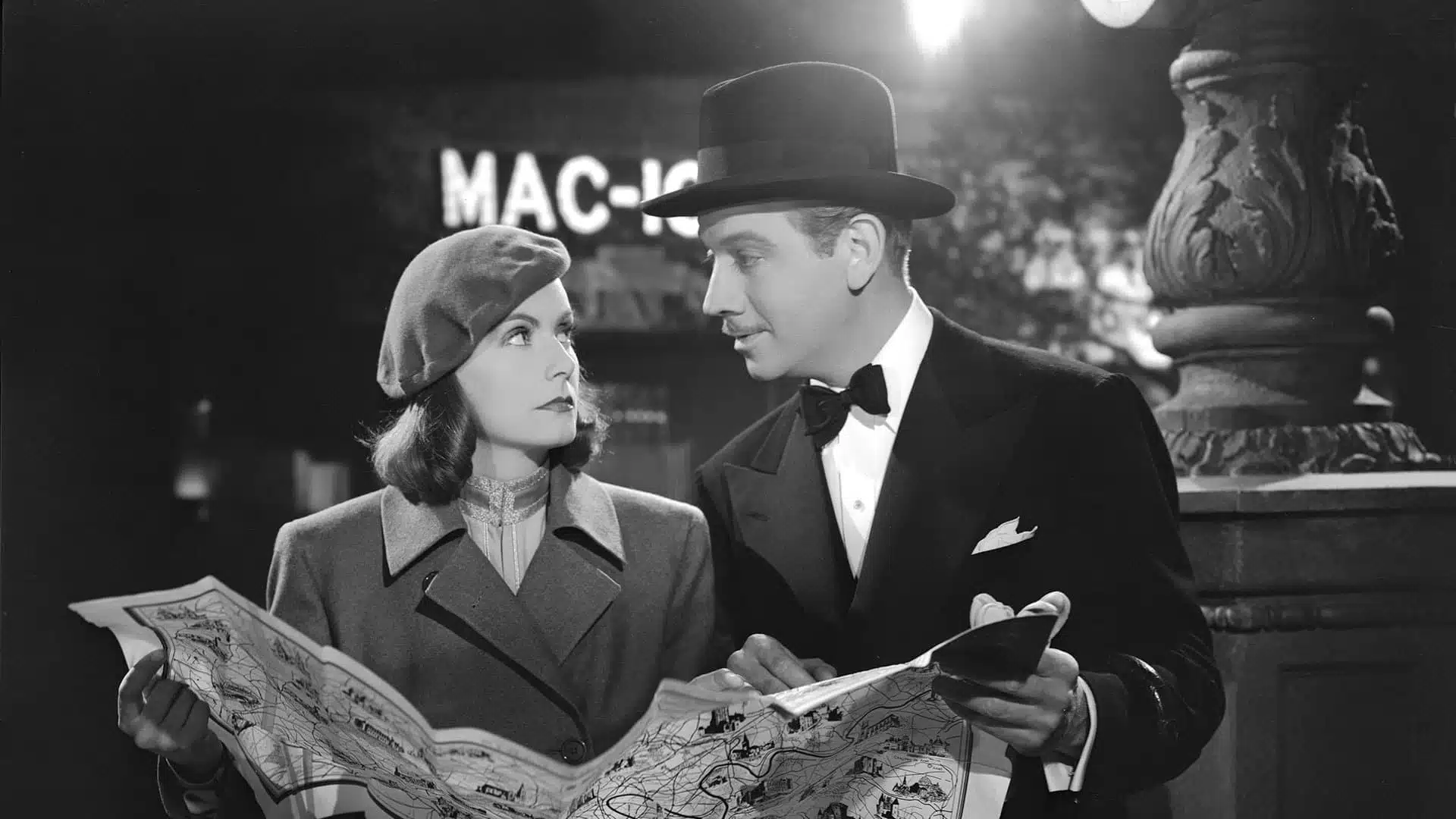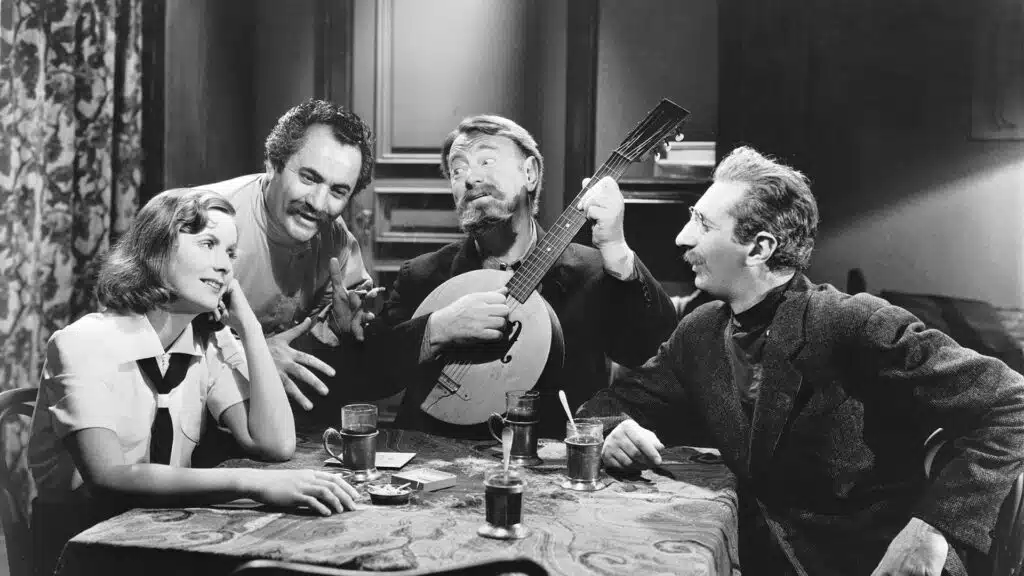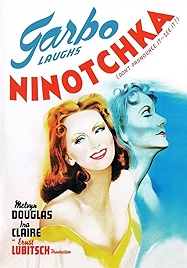Because Ninotchka stars Greta Garbo, was directed by Ernst Lubitsch and was written by the great Billy Wilder and Charles Brackett, along with Walter Reisch, it tends to get an easy ride when talk turns to the momentous American films of the golden era. It was released in 1939 too, Hollywood’s annus mirabilis, which also helps.
If it’s not quite the classic it’s often billed at it’s not far off. Its problem – let’s get the bad stuff out of the way to start with – is that it solves the question it poses early on, leaving its star slightly with nowhere to go.
The question: how would a stern, utilitarian Communist react to the fleshpots of gay Paris? Garbo plays the strict envoy sent by her Soviet paymasters to sort out a deal that’s already been bungled by the three Soviet lackeys who were sent to Paris before her to sell off some White Russian jewellery confiscated during the revolution. But before they could finalise the sale, Iranoff, Bujanoff and Kopalski were “got at” by Count Léon, boyfriend of the original owner of the jewels, the Grand Duchess Swana – who happens to be in Paris too – and along with their reputations the three men’s Communist ideals now lie in ruins, wine, women and song having seen to that.
The same tricks emphatically won’t work on Ninotchka, a hatchet-faced commissar with no sense of humour and an ideologically driven determination to see the deal through. Though of course that isn’t going to stop Count Léon from trying.
What plays out is a duel between flighty, extravagant capitalism and dour, utilitarian communism, between flippant Léon and sombre Ninotchka, with Iranoff, Buljanoff and Kopalski offering varying levels of support to Ninotchka on one side and various exiled White Russians aiding the Count and Grand Duchess on the other.
Does it go without saying that Ninotchka will fall in love with the Count, and he with her? It kind of does. The film’s pre-publicity stated that something along those lines was going to happen – it was sold as a romance, after all, and was widely trailled with the line “Garbo Laughs!” (an echo of the super-famous slogan for 1930’s Anna Christie – “Garbo Talk!”) so something is obviously going to bring down Ninotchka’s Iron Curtain.
It was Garbo’s first comedy and she turns out to be good at both not laughing and at melting into fits of giggles once Ninotchka learns how great capitalism is – that’s the film’s real message, and it’s not making any bones about it.
The film plays to her image. At various points Garbo refers back to that line from 1932’s Grand Hotel about wanting “to be alone” and her Scandinavian accent turns out, with a tweak, to be well suited to playing a Russian, though Garbo darkens it, makes it more sombre and forbidding.
Garbo is fascinating to watch, because the long face, helmet hair and thin lips wouldn’t seem to mark her out as a natural screen goddess. And in repose she isn’t. But in motion she is somehow transformed. There is something magnetically watchable about her, whether playing the sour killjoy or the lover drunk on life, love and champagne.
This switcheroo happens about halfway in, which, as said, does leave Garbo hanging a touch. But the rest of the cast is so good it’s less of a problem than it might have been. Sig Ruman, Felix Bressart and Alexander Granach play Iranoff, Buljanoff and Kopalski as a Greek chorus by way of the Three Stooges/Marx Brothers. Ina Claire does a lot of dramatic heavy lifting as the entitled Grand Duchess, and her showdown with Ninotchka at a late point in the proceedings is one of the film’s high points.
Which leaves Melvyn Douglas as Count Léon, a playboy aristocratic exile in a Paris full of noble layabouts. Douglas gives it plenty of the William Powell raised eyebrow and quizzical look and is better at playing the superficial scoundrel than the all-in lover, but he’ll do.
Lubitsch directs with his usual style – the early scene where Léon hornswoggles Iranoff, Buljanoff and Kopalski is done entirely from outside the room where it’s all going on, an example of Lubitsch’s famous “touch” – and the film was a great success. So much so that the studio reteamed Garbo and Douglas the following year in Two-Faced Woman. Which was such a resounding flop it convinced Garbo to retire. Oh well, we’ll always have Paris.
Ninotchka single movie – Watch it/buy it at Amazon
Ninotchka as part of the Greta Garbo Signature Collection – at Amazon
I am an Amazon affiliate
© Steve Morrissey 2023


